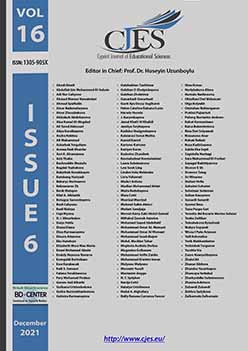The effect of cross-curricular integration on pupils’ knowledge gained through experiential learning
The effect of cross-curricular integration on pupils’ knowledge gained through experiential learning
Author(s): Nastja Cotič, Mara Cotič, Darjo Felda, Nina KrmacSubject(s): Education
Published by: Birlesik Dunya Yenilik Arastirma ve Yayincilik Merkezi
Keywords: Cross-curricular integration; mathematics; science; experiential learning; TIMSS; cognitive domains;
Summary/Abstract: This study examined the effects of the cross-curricular model of integrating mathematics and science with experiential learning on the knowledge of 3rd grade primary school pupils in Slovenia. The purpose of this research was to design and implement school lessons rooted in integrating maths with science and concrete experience, and handling real objects. In the experimental group (N=149), maths and science lessons implemented a cross-curricular model which integrated experiential learning. In the control group (N=155), maths and science were taught as separate subjects without experiential learning. The data was collected with pre- and post-tests to establish pupils’ knowledge. Differences between groups were analysed through Mann-Whitney U test and Wilcoxon signed-rank test and showed that pupils from the experimental group performed better at the 2nd and 3rd TIMSS cognitive domain. Findings indicate that the cross-curricular learning model has a positive effect on pupil’s achievement in science and mathematics.
Journal: Kıbrıslı Eğitim Bilimleri Dergisi
- Issue Year: 16/2021
- Issue No: 6
- Page Range: 3133-3146
- Page Count: 14
- Language: English

